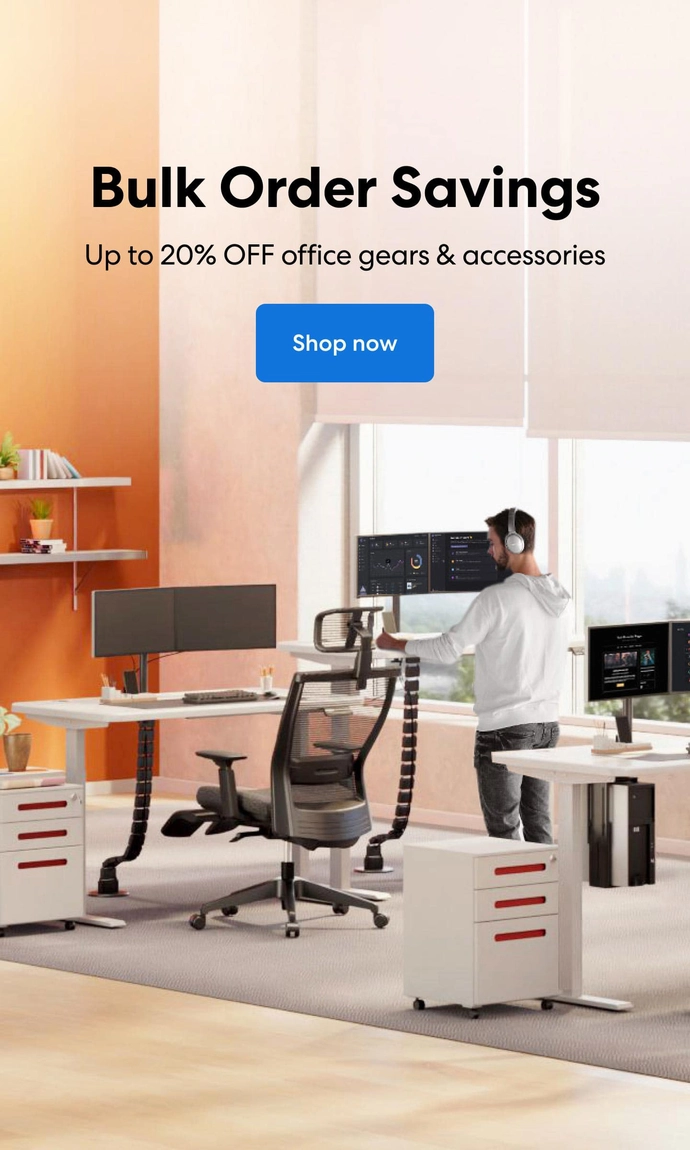What is an Ergonomic Workspace? A Complete Guide
Working in an environment that is not ideal for doing so can have a negative impact on both your health and the quality of work you produce. Ergonomic workspaces take your comfort and health into consideration. They are designed in such a way that they provide workers with superior comfort and can even maintain concentration and boost productivity. They often incorporate certain items such as ergonomic chairs and even standing desks to get the most out of the individuals who use them. If you are still a little in the dark as to what an ergonomic workstation setup is, this is a complete guide as to what it is.
What is an Ergonomic Workspace?
Ergonomics is often referred to as a science that incorporates making changes to your workplace to maximize the comfort of the individual. It has that it reduces discomfort while simultaneously improving one's productivity and efficiency. The science takes into consideration things such as the angle of your computer monitor or the height of your desk.
Typing every day while staring at a screen can cause you to put additional strain on your wrists and even cause your eyes to hurt. Implementing some ergonomic practices into your workspace can eliminate these factors and prevent workplace injuries by making small adjustments that are suited to you.
Ergonomics emphasizes one's posture, as this can help reduce the long-term effects experienced by individuals as a result of multiple repetitive motions. Constantly using computers to work as well as the never-ending changes to technology are the primary reasons why anyone should consider having an ergonomic workspace.
Whether you are looking at your home workspace or place of employment, the lighting, chairs, desks, monitors, and keyboards are all factors that you should consider making changes to that could have a major impact on the ergonomics of the workplace. It all contributes to creating an ergonomic work area.
Keeping that in mind, you should also make a conscious effort to get up and move around at constant intervals throughout the day. Most furniture that is incorporated into offices encourages fixed and even stiff sitting positions with little to no movement being encouraged. Finding a balance between sitting and standing is a great way to improve your productivity and general health. This can be done by incorporating a standing desk or height-adjustable desk into your ergonomic workstation setup, as they are an excellent way to combat the results of constantly sitting down.
Elements That Affect the Ergonomics of a Workspace
There are some elements that have a major impact on the ergonomics of a workplace. They affect both the comfort levels and productivity of the individuals using them. While many other little adjustments can be made, these are the essential factors that affect an ergonomic workspace.
Keyboard Positioning
Many people place their keyboards on top of their desks out of habit or because they are under the impression that this is the best position for it. If you are guilty of this, it may just be time for you to reconsider doing so. The placement of your keyboard on top of your desk is actually very inconvenient and has been shown to cause long-term damage to one’s wrists. It is also uncomfortable for your back and neck.
You should consider adjusting your ergonomic keyboard height to a position where it rests about one to two inches above your thighs. This position allows your arms to remain relaxed and in a much more comfortable position. This is some of the best ergonomic advice you can receive in relation to your keyboard placement.
Monitor Placement
The majority of office workers are under the impression that the center of your monitor's screen is where you should focus your eyes. The truth is that experts say that the top quarter of the monitor is the best position for your eyes. By looking at this part of the screen, you prevent your back and neck from slouching. Along with that, it also allows you to adopt a sitting position that prevents you from getting any muscle cramps in your neck or shoulders.
In case you use multiple monitors, you should also consider the height and distance of your screen to have the best effects. You, ideally, should be seated about an arm’s length from your monitor. Reading from too far or even too close can put unnecessary strain on your eyes and even cause damage to your vision. Your neck should also be tilted slightly downwards as it places your neck in a much more comfortable position while you work. If your monitor does not have an adjustable height arm, you can consider placing your monitor on some books or getting a monitor riser to adjust your screen height to a more comfortable level.
Your Desk
While a comfortable chair is a must-have for any workspace or office, standing is also a necessity. Some organizations have made the decision to move away from traditional desks in favor of the much more ergonomic standing desks. These standing desks are great ergonomic additions to any workspace and are adjustable. This means that you can set your preferred height so that you can make use of the desk regardless of how tall you are. There have been many reports from users of these desks that their efficiency has drastically improved.
These desks are also a great way to keep you fit. Using a standing desk makes it possible for you to stretch and perform some exercises while you get through your work. Incorporating a standing desk into your workspace is a great way to improve your posture, overall health, and productivity. They are a great way to create an ergonomic standing workstation.
Your Chair
Your chair is one of the most used pieces of equipment in your ergonomic office. Due to this, it is crucial that you incorporate a chair that is both comfortable and suited to you. Having a good ergonomic chair can do wonders for you while you work. These chairs are designed with ergonomics in mind, making special considerations for the user’s comfort. A good ergonomic chair should have an adjustable height setting, as well as some neck and lumbar support.
Ergonomic office chairs are designed so that they assist in correcting one's posture and alleviate back and neck pain. Studies have been conducted that have found that people who use ergonomic chairs also have improved concentration and productivity levels. Incorporating one of these into your ergonomic work area is a great way to make you feel more comfortable as well as improve the quality of your work.
The Mouse You Use
Using your mouse frequently can result in your wrist undergoing excess stress and can result in some injuries to it. This is a problem that can be solved by taking frequent breaks or by learning to alternate the hand with which you use your mouse.
There are also some handy tips that you can use should you want to make some ergonomic adjustments to your mouse. The first of these tips involves you adjusting how tightly you hold your mouse. You should have a very loose grip when using your mouse rather than gripping it tightly. Secondly, you should consider investing in a vertical mouse as one of these allows the user to place their hand in a neutral position.
Using your mouse too often can put additional strain on the tendons in your arm. You can relieve this tension by periodically shaking your hands for about 30 seconds. This makes a massive difference and even improves the blood flow to your hands, thus minimizing injury chances.
Pros and Cons of an Ergonomic Workspace
If you still do not believe that it is worth your while to invest in making your work environment more ergonomic, here are some of the pros and cons associated with choosing to make the space more ergonomic. By comparing the pros and cons to one another, you can decide for yourself whether it is worth the investment.
Pros of the Ergonomic Workplace
Some of the benefits associated with having an ergonomic workplace include:
- Improved concentration and boost productivity while working.
- An increase in the quality of work you are able to produce.
- Alleviation of any aches and pains that are often a result of working in poor ergonomic conditions.
- Improved posture and overall health.
- Boosted mood due to more comfortable working conditions.
- Being able to work for extended periods of time and, as a result getting more work done.
As you can see, these benefits are quite tempting, especially if you are looking for a way to improve both the quality and amount of work you can get done in a day.
Cons Associated with an Ergonomic Workplace
Although there are a number of benefits that come with incorporating some ergonomic features into your workspace, there are also some cons. These cons are:
- Ergonomic additions to your workspace are often more expensive than standard versions.
- A poor-quality ergonomic option can cause more damage than good.
- It can take some time to get used to the new way of working.
Although there are some cons, these can be easily solved. There are some great ergonomic additions that you can make to your ergonomic workstation setup that are available at a relatively reasonable price. These are great for any workplace and can really improve the quality of life you experience while working.
How to Create an Ergonomic Workspace
So, how to make space more ergonomic?. Remaining seated at your desk for eight or more hours a day is certainly not natural; however, for the majority of office workers, this is the norm. With the current pandemic being experienced by the world, many people have also taken to working from home. This brings about the problem of having to create ergonomic offices that make ergonomic considerations. This is essential if you are looking to remain healthy and productive.
Some of the most sound ergonomic advice focuses on you remaining in a neutral and relaxed position while you work. This is great as it reduces the stress and fatigue experienced by your muscles and joints while you work. By sitting in this position, you keep your back supported and keep your shoulders and arms relaxed.
There are a number of tips that you can incorporate to help you create an ergonomic workspace that is perfectly suited to you and your needs. It is also relatively easy to do so, meaning that you do not have to overhaul your workspace completely in order to do so.
The first of these tips is that you adjust your chair. Your chair does not necessarily have to be the most expensive ergonomic chair, but rather should just be adjusted to your body. The adjustments that you make to your chair should be to support your back, to adjust the height to a suitable level for you, to the seat pan, and also to allow you some movement while sitting.
The next tip that you should consider is moving your keyboard. By doing so, you can allow your arms and shoulders to be in a more neutral position while you work. You should consider making some adjustments to where you put your keyboard, its height, the tilt of it and might even consider using a split keyboard. You can also make use of a keyboard tray to keep the keyboard in a more comfortable position.
Next, you should align your monitor. You should make adjustments to both the height and distance that you sit from your monitor. By sitting one arm’s length away from it, you place yourself in an optimal position. This reduces the strain on your eyes as well as how much your neck needs to strain while working.
The last tip for creating an ergonomic workplace is that you should not forget to move around. You should pay attention to the way that your body feels, and if you feel any pain or discomfort, you should consider getting up and going for a little walk. For every 20 minutes you sit, you should stand for at least eight.
You can also consider adding some ergonomic office accessories to your workplace to make it just that little bit more comfortable.
Subscribe for a 10% discount on your first order.
Sign up for our weekly update and be the first to know about our specials & promotions.
Spread the word

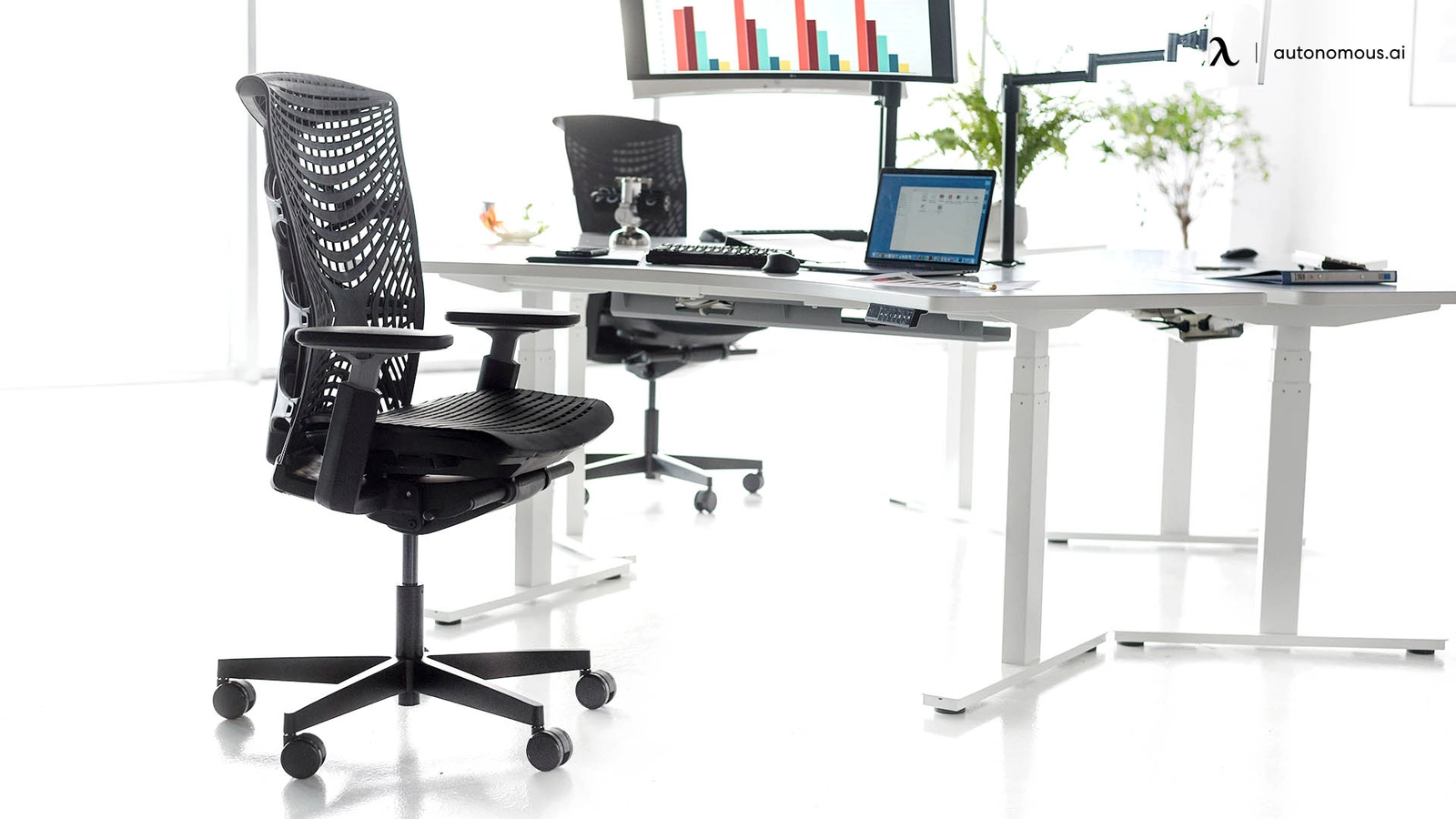
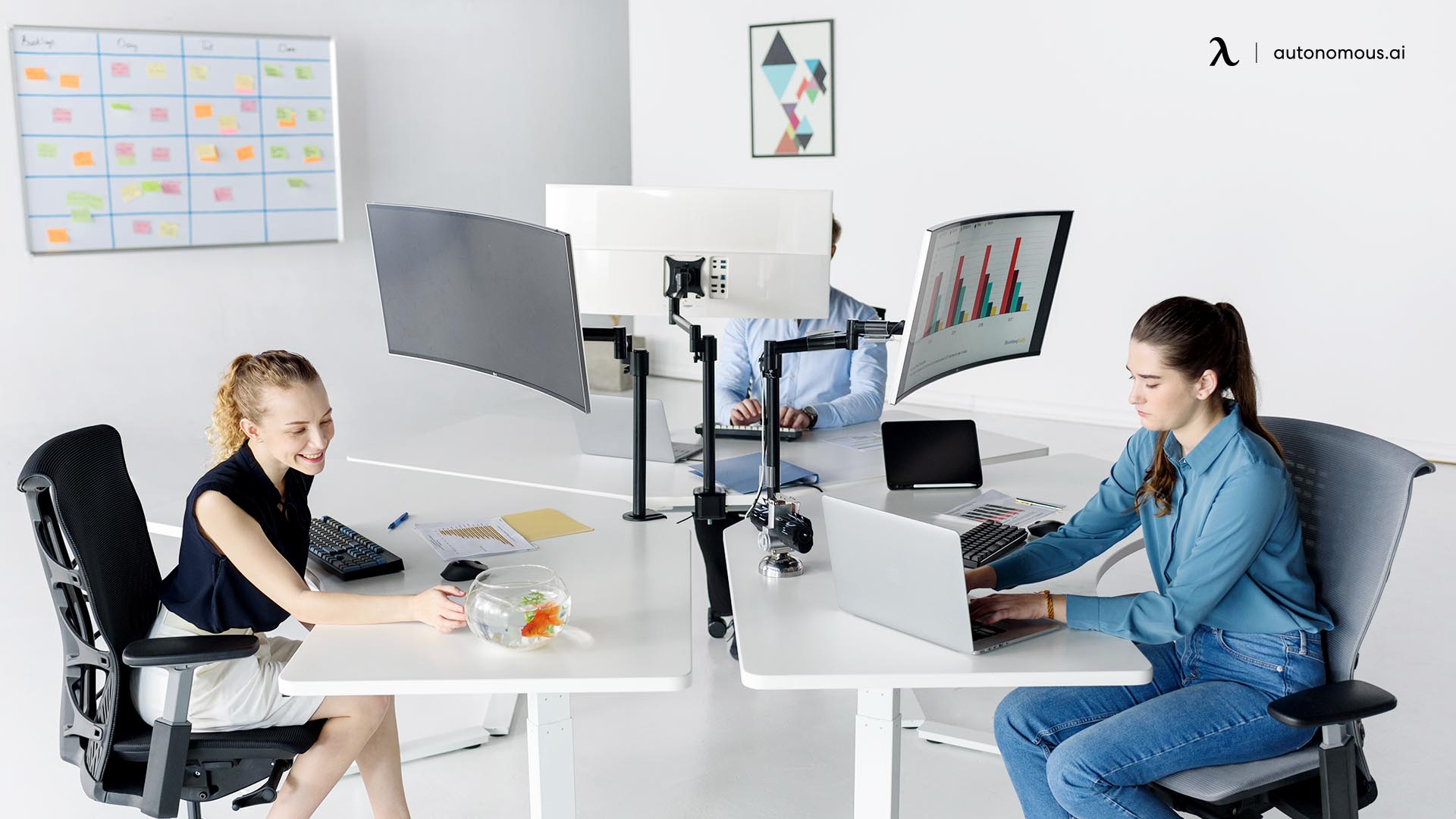



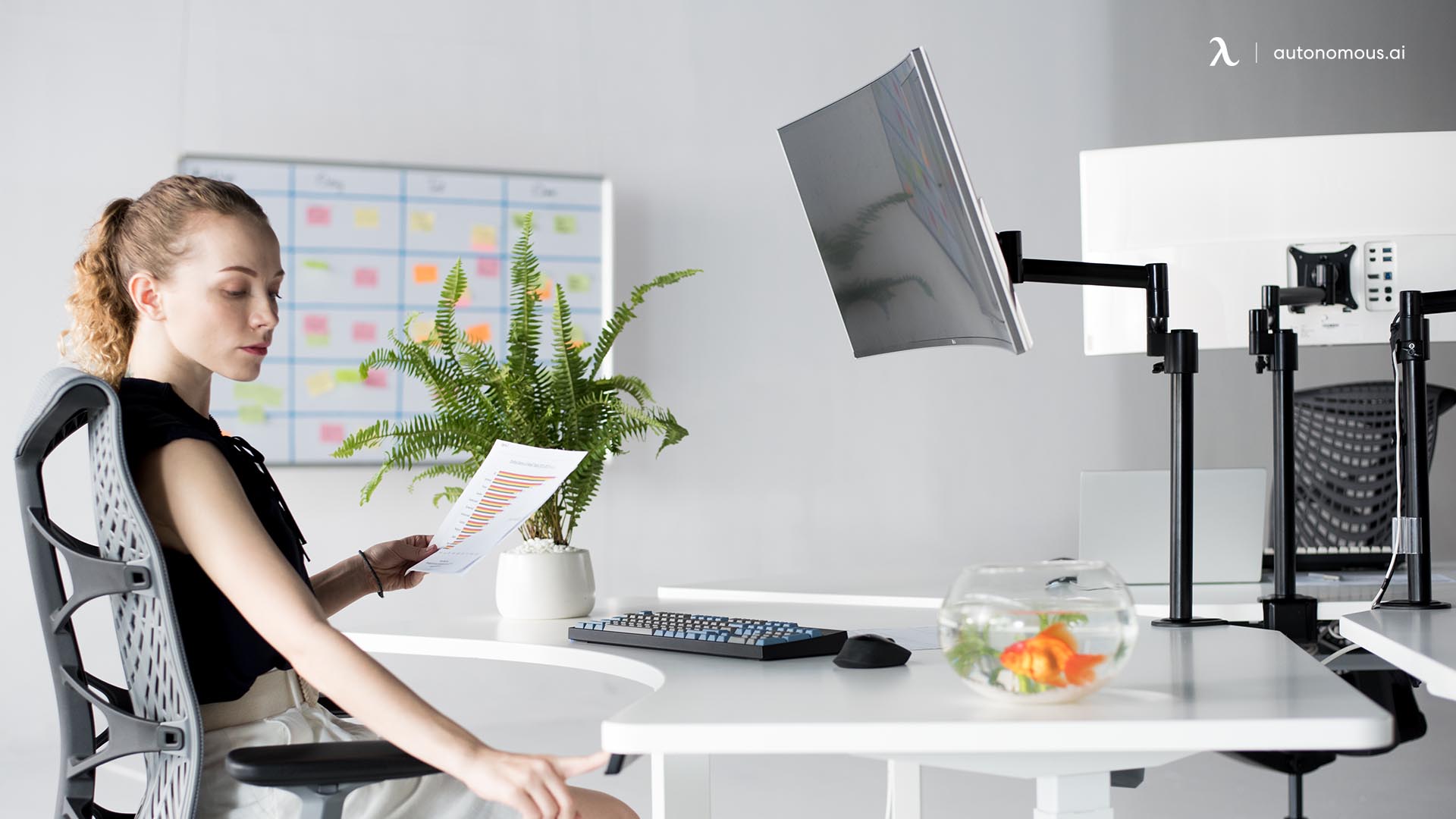
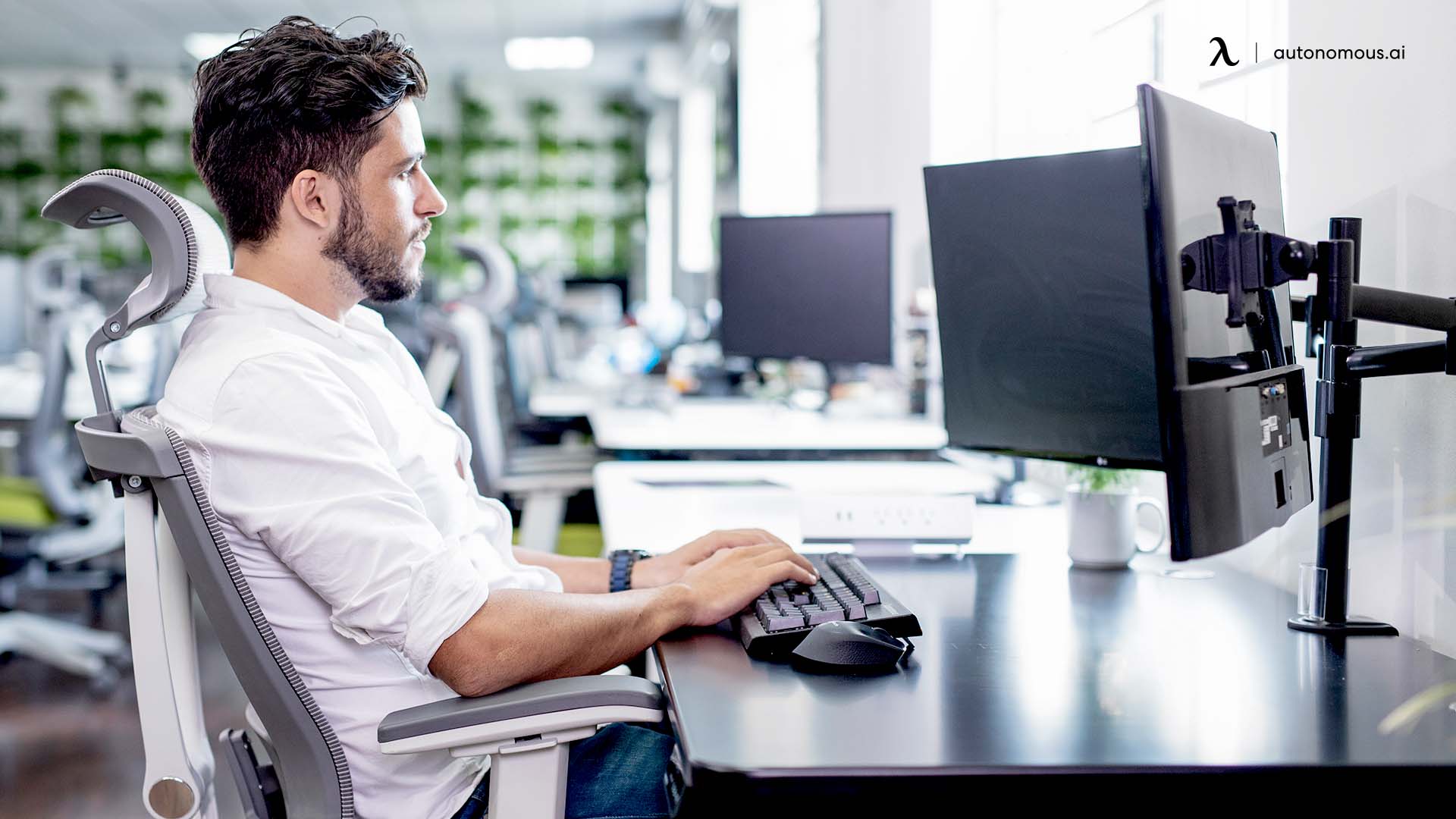
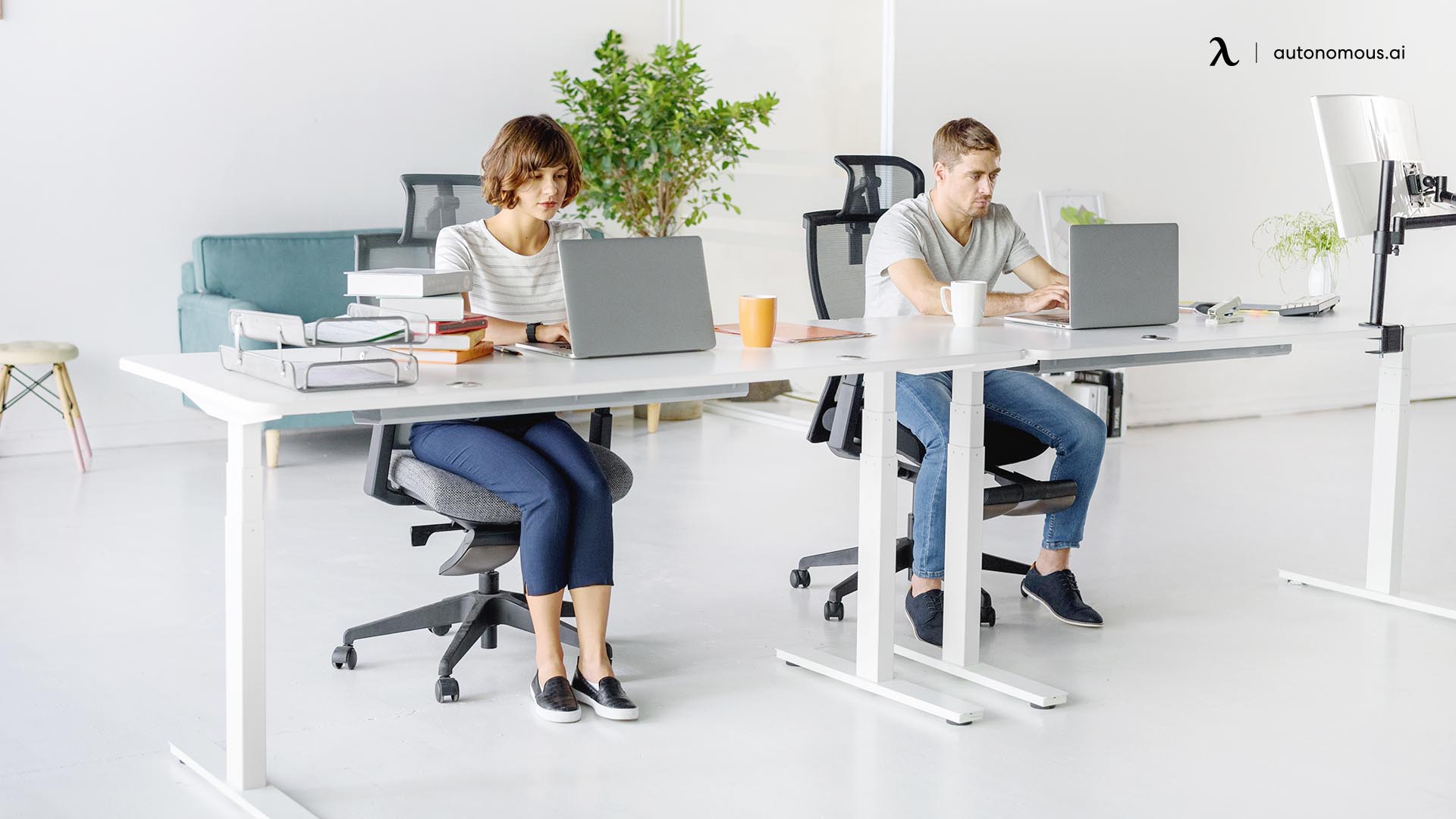
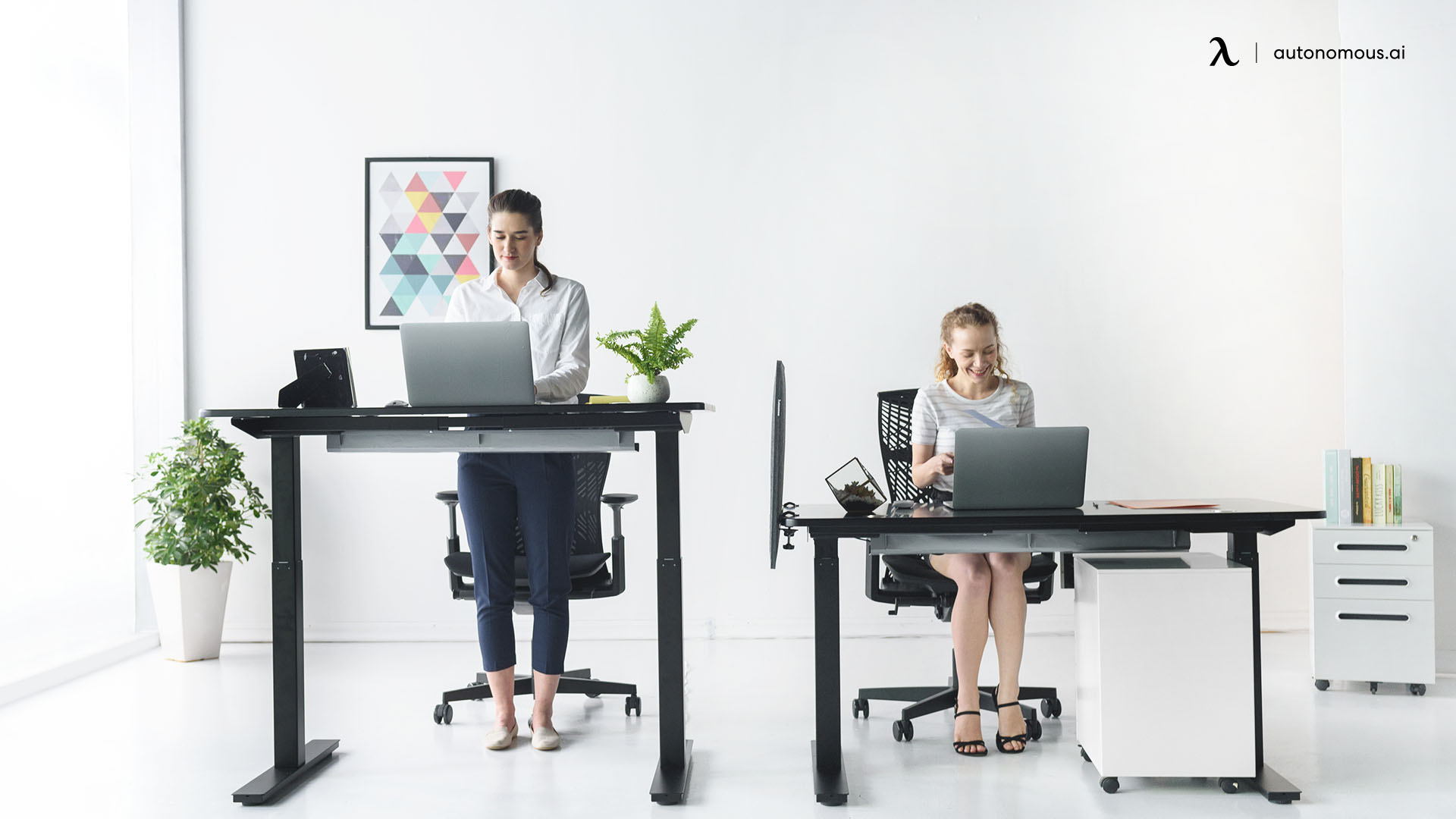

.jpg)
